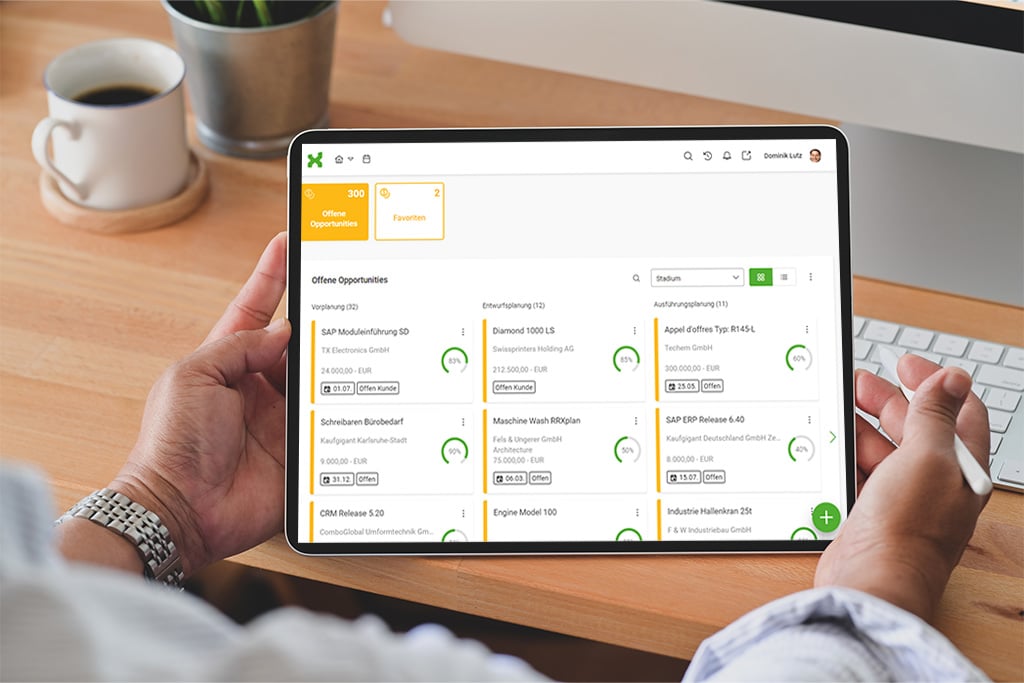How to generate more revenue with targeted opportunity management
Effective opportunity management helps companies maximize their revenue potential and ensure long-term growth. In theory, the ideal customer journey looks like this: From first contact, through lead and opportunity management, to closing the sale. But things don’t always go as they do in theory. Sales projects often fail to close because the contact person is not the relevant decision maker, the sales potential has been incorrectly assessed or prioritized, and planning and implementation in the team is doomed to failure from the outset. This is why proper opportunity management is critical to closing sales. In this blog post, you will learn what is meant by opportunity management, why it is so important and how to use it in a targeted way to increase your sales.

What is Opportunity Management?
An opportunity is a sales opportunity or a distribution possibility for a company, where the potential customer’s project is considered an “opportunity” because there is a prospect of successfully closing the sale. Opportunity management is thus focused on the process and management of sales opportunities. The process involves identifying prospects, qualifying and tracking opportunities throughout the sales cycle – from lead to order. Opportunity management is supported by the use of CRM systems and other tools.
The aim of opportunity management is to increase sales success by targeting and supporting potential customers in the various phases of the sales process, resulting in more sales being closed.
7 steps to successful opportunity management in B2B sales
Essentially, the opportunity management process includes the following steps:
Prerequisites for good opportunity management
A solid database is crucial to manage opportunities properly. Therefore, it is important that customer data in the CRM system is up-to-date, complete, and accurate. Regular data cleansing and updating is required to ensure accurate information about customers and potential sales opportunities.
Considering the overall success of an opportunity and the subsequent processes, the CRM system is ideally integrated with SAP ERP or S/4HANA to map an end-to-end process. A prerequisite for this is the prior definition of the processes in order to map them afterwards.
Conclusion: This is why good opportunity management is so important
By effectively managing opportunities, companies can increase sales efficiency, improve conversion rates, and increase revenue. It also supports long-term customer retention and the building of strong customer relationships. So it pays to focus on good opportunity management and consider it as part of the sales strategy.
About the author

